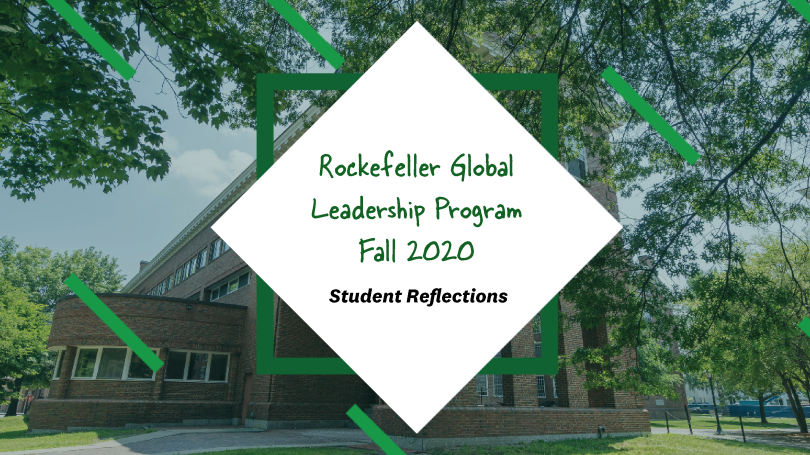
- Public Policy
- Leadership
- Funding
- News & Events
- About the Center
Back to Top Nav
Back to Top Nav
Back to Top Nav
Back to Top Nav
Often times, we find ourselves in new and unfamiliar environments, whether it be going to college in another state and being surrounded by new friends or travelling to a different country for the first time and not knowing the local language and culture. In these new surroundings, it is important to be adaptable and part of that flexibility is being tolerant and comfortable of ambiguity. While we may not always know how to respond properly and acknowledging that being outside of our comfort zone may feel draining and awkward, we can always choose to respond with grace and an eagerness to learn.
I experienced a type of culture shock when arriving on campus as a first-year student and being introduced to a completely new setting far from home. I come from a city where I am used to movie theaters, malls, and readily accessible public transit. This was not the case in Hanover. In fact, I never really expected to be in a small town for the next four years of my education. However, after arriving on campus, I have learned to adapt and change. My first term on campus felt uncomfortable; I was not used to being outside of my comfort zone. Then, hikes and diners that were initially outside of my comfort zone slowly became more familiar. As I continue through Dartmouth, I have learned to be more tolerant to the ambiguities that various situations present.
Furthermore, for all of us, these experiences and skills translate much further beyond Dartmouth into the “real world.” In this broader context, managing ambiguity can mean asking questions about the local culture when travelling, thinking critically when faced with a tough dilemma, or simply listening actively to friends and family. Whether we are travelling to unfamiliar places or simply working in a new place, we should remember to continue adapting to cultural differences in order to facilitate cross-cultural communication.